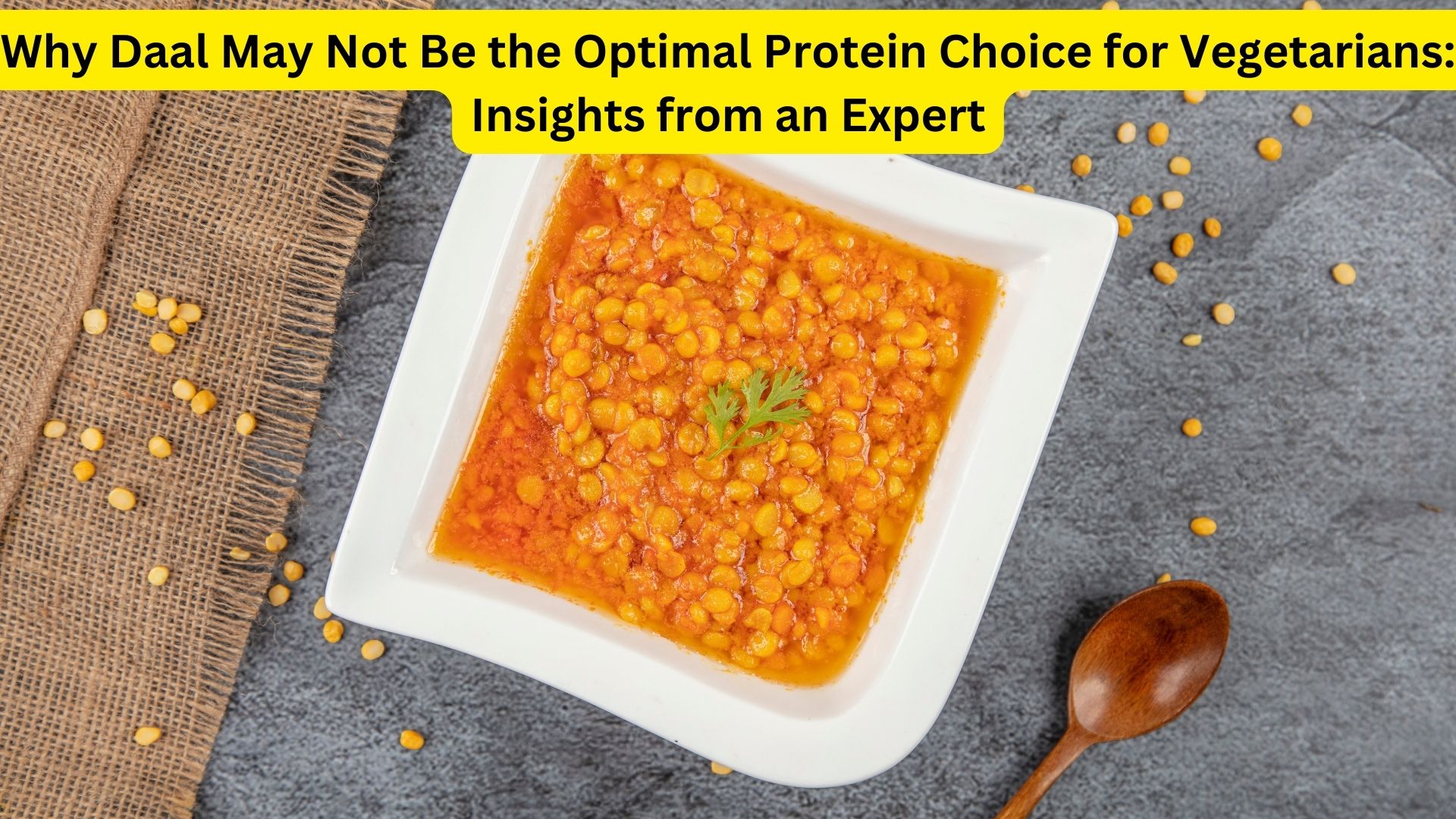
For generations, the humble yellow daal has held a revered position as a primary protein source in Indian culinary traditions. However, it is time to challenge the prevailing belief that daal reigns supreme as an unrivaled protein powerhouse. Fitness expert Alexander Cortes suggests that while daal is undoubtedly nutrient-rich, its protein content may have been overestimated. This calls for a reconsideration of our dietary priorities, urging us to explore alternative, higher-quality protein sources.
Navigating the Daal Dilemma
Widely considered a robust protein source in Indian households, daal is thought to significantly contribute to daily nutritional needs. Yet, a closer examination reveals that while daal is protein-rich, its status as a protein juggernaut may be overstated. The presence of a substantial amount of carbohydrates alongside protein could potentially dilute its overall protein density. It is crucial to recognize that our dietary choices should be based on a comprehensive understanding of nutritional science rather than solely relying on tradition.
The Protein Duo’s Limitations
The classic pairing of rice and daal, emblematic of Indian meals, provides a wholesome and comforting experience. However, depending solely on this combination may lead to a lack of diversity in protein intake. While daal offers valuable nutrients, diversifying protein sources is essential for a well-rounded diet. By broadening our protein options, we not only enhance the nutritional profile of our meals but also fortify our bodies with a spectrum of essential amino acids.
Advocating for Dietary Diversity
Indian cuisine offers a range of protein-rich alternatives beyond daal. Incorporating diverse protein sources such as paneer, tofu, lean meats, and eggs can elevate the overall quality of protein in our diets. These alternatives provide a more comprehensive amino acid profile, addressing potential gaps that a daal-centric diet might overlook. Embracing this diversity enriches our palates and optimizes our nutritional intake, promoting overall well-being.
The Power of Paneer
Paneer, a versatile dairy product, deserves attention in the quest for superior protein. With a protein content comparable to meat, paneer serves as an excellent alternative for those seeking a break from daal-dominated meals. Its adaptability in various culinary preparations adds a delightful twist to the dining experience while ensuring a protein-packed punch. In reassessing our protein choices, paneer emerges as a compelling contender, challenging the conventional dominance of daal.
A Plant-Powered Protein Alternative
For those inclined towards plant-based protein sources, tofu emerges as a compelling option. Derived from soybeans, tofu stands as a versatile and protein-dense substitute. Its ability to absorb flavors makes it an excellent addition to a myriad of dishes, offering a departure from the predictable tastes associated with daal. By incorporating tofu into our diets, we not only diversify our protein intake but also contribute to environmental sustainability, aligning our choices with broader global concerns.
Exploring Lean Meats
While daal takes center stage in many Indian households, lean meats quietly await recognition as formidable protein providers. Chicken, fish, and mutton bring a different texture and flavor to the table while delivering a protein payload that rivals traditional daal. Including lean meats in our diets introduces a delectable variety and caters to those seeking a protein source with a different culinary character.
Balancing Tradition and Modern Nutrition
Reassessing daal’s role in Indian cuisine doesn’t mean abandoning tradition; instead, it advocates for a harmonious blend of culinary heritage and contemporary nutritional insights. By embracing a balanced approach, we can maintain the essence of our cultural dishes while optimizing the nutritional content to meet the demands of modern lifestyles. The key lies in informed choices that prioritize both tradition and health, ensuring a holistic and satisfying dining experience.

One thought on “Why Daal May Not Be the Optimal Protein Choice for Vegetarians: Insights from an Expert”